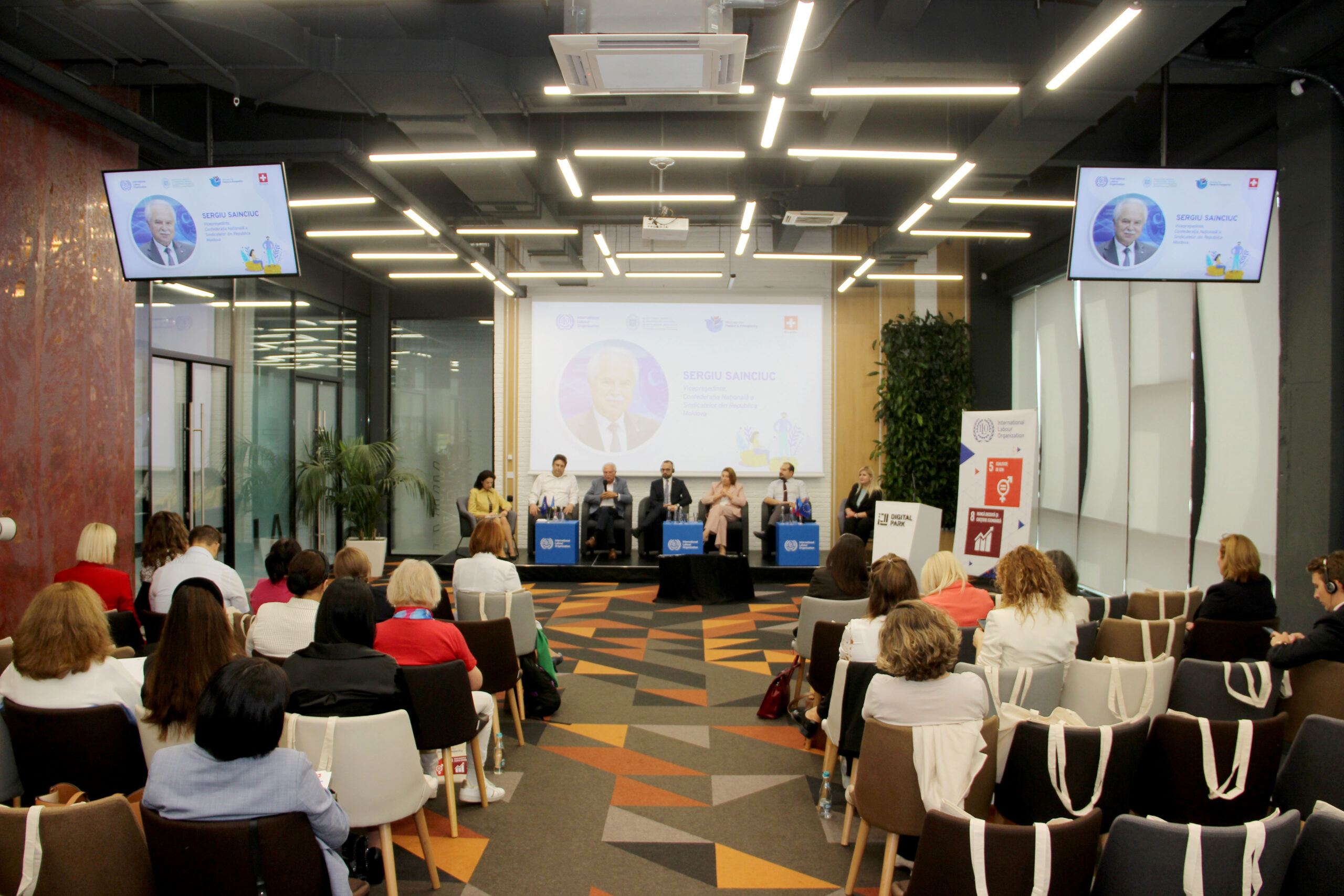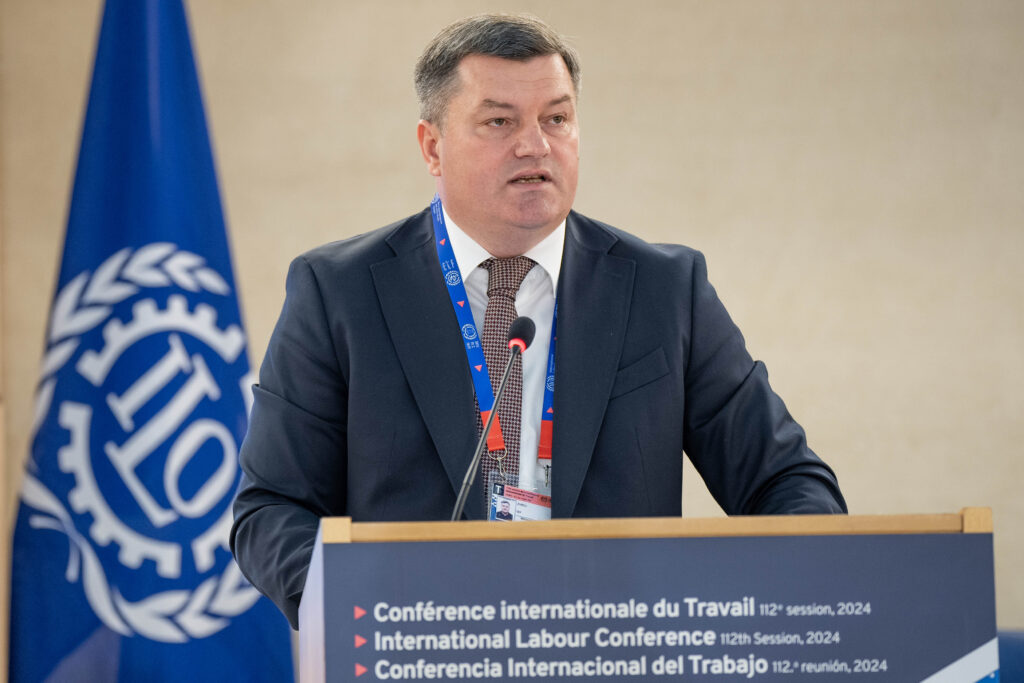In the Republic of Moldova, women earn 5-9 percent less than men in hourly wages and 11-15 percent less in monthly wages. Although the gender pay gap in Moldova is lower than in many countries of the world, it is still not negligible and needs to be reduced through concrete measures promoted at national level. A report by the International Labour Organization (ILO), presented in Chisinau today, 18 September, on International Fair Pay Day, says.
The event was attended by representatives of the Government and Parliament, social partners, the UN country team, business, academia, and development partners. The activity was also attended by Sergiu Sainciuc, Vice-President of the CNSM, and Lilia Franț, Vice-President of the CNSM.
According to the report “Gender pay disparity in Moldova: recent trends and policy recommendations”, worldwide the gender pay gap (GPG) is about 20 percent in favour of women. In Moldova, this gap is higher for certain groups. For example, women between 25 and 34 earn less, choosing more flexible but lower-paid jobs in order to be more involved in childcare. The gap is also wider for those working in the informal economy, but also for non-union members.
In a panel discussion, Sergiu Sainciuc, Vice President of the CNSM, communicated the CNSM’s position on the measures needed to accelerate progress in closing the gender pay gap in our country. The Vice President of the CNSM noted that the topic is a very important one, promoted by trade unions at all levels, and expressed his hope that this issue will be addressed in the future Decent Work Country Program.
Sergiu Sainciuc mentioned that although we have a good legal framework in the field of gender equality, the problem of wage discrepancy arises in the process of employment in the labour field, in labour relations, in the way women are promoted to managerial positions, in jobs in which women are predominantly involved, which has negative effects when it comes to reaching retirement age.
The vice-president of the CNSM added that even if wage increases have been implemented, they are still insufficient and need to be increased, in line with EU directives and other international standards, in order to better motivate, especially among young people, where there is a high degree of labour migration.
The report presented in Chisinau by ILO experts comes with a number of policy recommendations. These include promoting job assessments, introducing incentives to increase the accessibility of childcare services, promoting women’s enrolment in STEM (science, technology, engineering and math) fields of study, measures to increase women’s representation in managerial roles and improving data.
In many countries, the gender pay gap is not explained by clear factors such as age, education or field of work. More often, it is linked to discriminatory practices. These include barriers for women in accessing top positions and lower pay in areas where more women work, such as health and education. Eliminating it has become a key objective for many countries around the world, and the International Labour Organization is supporting the Government of the Republic of Moldova and the social partners in combating gender discrimination.
In this context, we mention that this week, the leadership of the CNSM, with the participation of representatives of the Women’s Commission of the CNSM, had meetings with ILO experts on a working visit to the Republic of Moldova, where they discussed gender-based wage disparities according to the International Labour Organization and the regulatory framework, trends of gender-based wage disparity in the Republic of Moldova, the revision of the legislative framework and policy recommendations, international initiatives to combat gender-based wage disparity.
The International Day on Fair Pay is marked to raise public awareness of the efforts to obtain adequate remuneration in relation to the work performed. Marking the day helps reinforce the United Nations’ commitment to human rights and against all forms of discrimination. The ILO’s 1951 Equal Remuneration Convention No 100 sets standards for countries that aim to close the gender pay gap. Today, equal pay is a prerequisite for gender equality and human rights.

